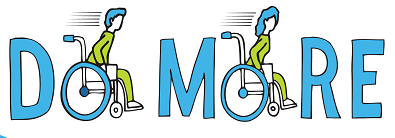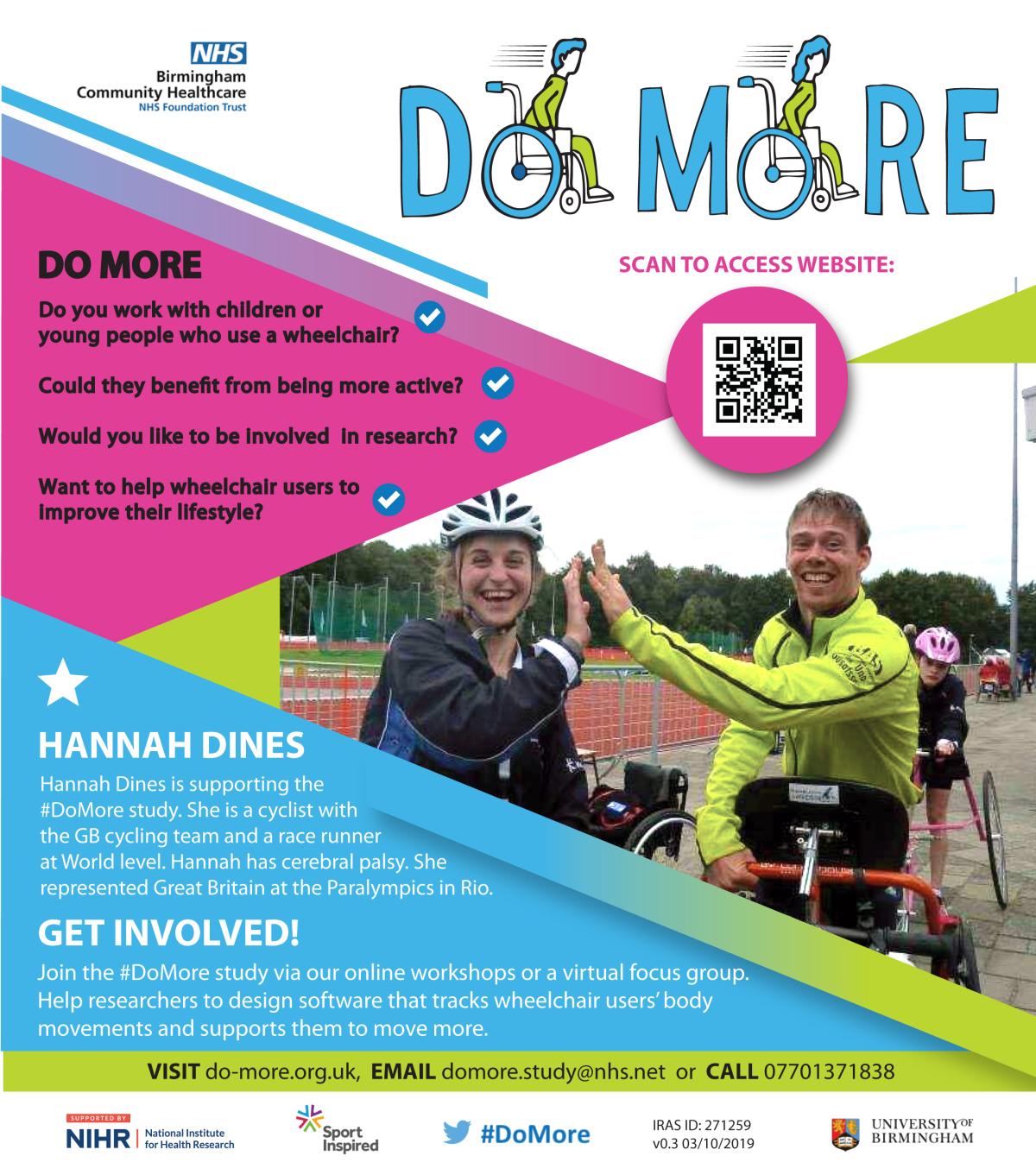APCP member, Marilyn Bradbury is leading a new research project - the Do More Study - aimed at developing an intervention to reduce sedentary behaviour in non-ambulant young people with long-term disability.
Marilyn is an HEE/NIHR Clinical Doctoral Research Fellow at the Birmingham Community Healthcare NHS Foundation Trust
What is the DoMore Study?

The DoMore study aims to find new ways to help children and young people with long-term disabilities, who are unable to walk, to move more in their daily routines. The programme will be co-designed, by working in partnership with young people who use a wheelchair (aged 12-25), family members of young wheelchair users, professionals and experts. They will participate in a series of online workshops involving anonymous online conversations. There will also be face to face focus groups. The researchers plan to include use of technology in the programme we develop together.
Why is the DoMore Study being done?
Evidence suggests long periods of sedentary time can increase the risk of poor health, for example obesity, heart disease and type II diabetes. Being sedentary means sitting or lying down whilst awake, and not using much energy. Reducing sedentary time can help to prevent poor health. Research shows that children with disabilities spend more time being sedentary than children who don’t have a disability. Currently, there are no evidence-based programmes to help young people with disabilities to reduce their sedentary time. This one will be the first of its kind.
How can you help?

The DoMore needs to recruit participants to collaborate in this research ...
- young people who use a wheelchair (aged 12-25),
- family members of children and young people who use a wheelchair,
- professionals working with children young people who use wheelchairs
- experts in disability, sedentary time and physical activity
Participants will contribute to a series of online workshops, involving anonymous online conversations or virtual focus groups. We intend to include use of technology in the programme we develop together.
If you'd like to participate, please visit the DoMore Study website to sign up and please also share information about this study with your colleagues and children, young people and families that you work with.
There are a series of posters targeting the different participant groups for you to download and print displaying as appropriate.
Your can follow the DoMore Study on Facebook or the researchers can be contacted via the DoMore website.
